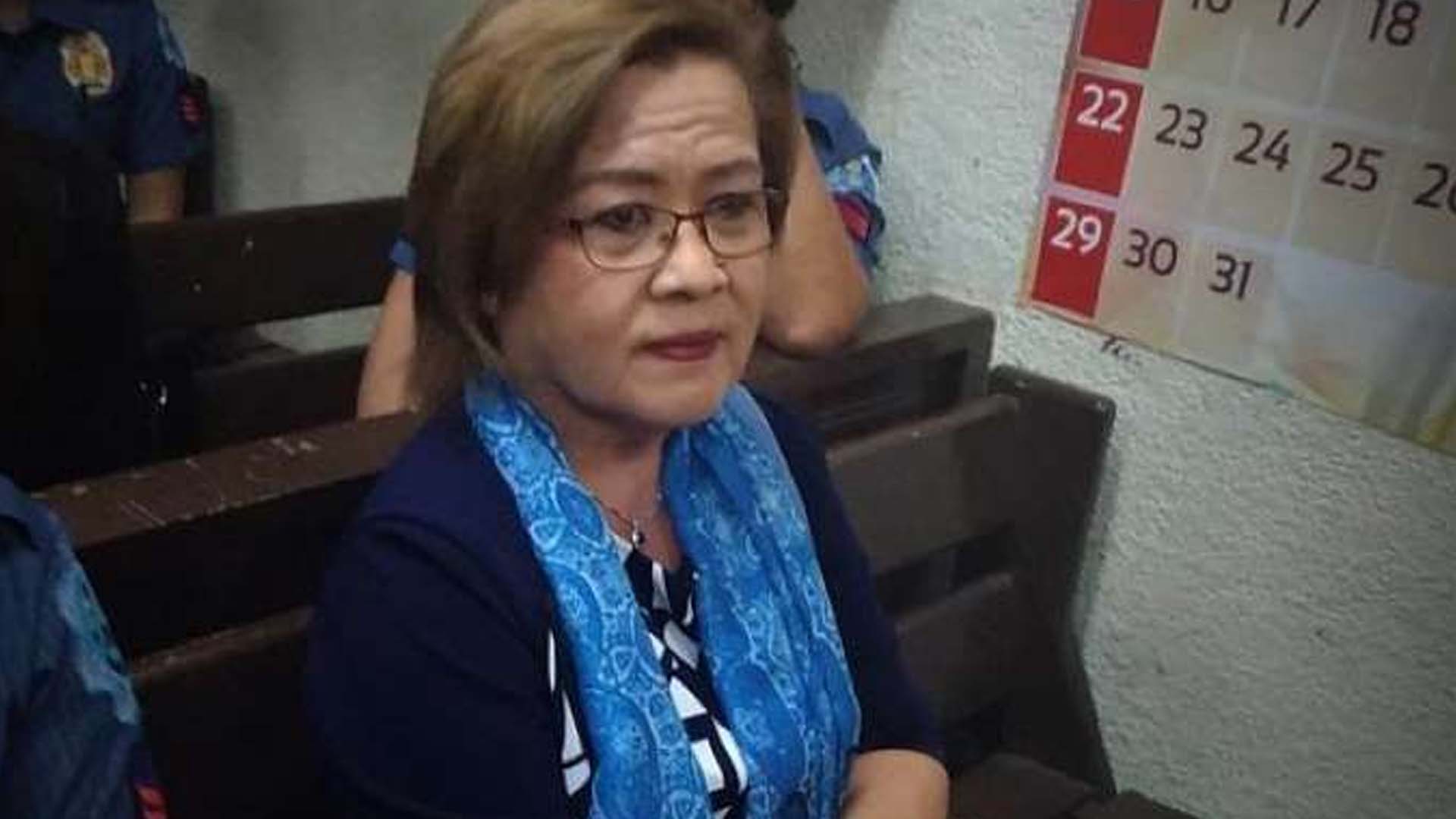Opposition Senator Leila M. de Lima has called on the national government to fully equip health authorities and assist local officials to prepare for the worst-case scenario in the event that the coronavirus (COVID 19) infection spreads uncontrollably across the country.
In her recent Dispatch from Crame 738, De Lima said that the first order of the day for public health and elected officials should be to prepare the country’s health force for the worst-case scenario to stop the further spread of the dreaded coronavirus.
“If this disaster is going to be on the same scale as Italy is now undergoing, our medical facilities should be expanded and our health force reassured that they will get all that they will need, both from the government and the private sector,” she said.
According to the World Health Organization (WHO), COVID-19 has killed nearly 9,000 people and infected over 218,000 around the world.
In Italy, over 3,000 people have died while 35,713 others have been tested positive for coronavirus infection.
In the Philippines where a month-long “enhanced community quarantine” is imposed, health authorities have reported 17 people who died and 202 others have been confirmed to have been infected by coronavirus, many of whom are elderly people.
Department of Health Undersecretary Maria Rosario Vergeire warned that the number of coronavirus cases could reach 75,000 in three months if the government would not take drastic actions to contain and stop the further spread of the virus.
Citing WHO studies, Interior and Local Government Secretary Eduardo Año who sits at the Inter-Agency Task Force on Emerging Infectious Diseases claimed that a person with COVID-19 can potentially infect around 100 people if he is not isolated and treated immediately.
The lady Senator from Bicol, however, pointed out that for the country’s health force to do its job well, the government should first have to secure national borders, especially against passengers coming directly from China.
“But as our health force starts to respond to every case of the dreadful disease, we must also make sure that our borders are secure from further infection from the outside, especially China,” she said.
“Any remaining flights from that country should be completely banned, something that should have been done two months ago when the first signals of a global pandemic began to arise from Wuhan as its residents started to spread the virus throughout the world, even while bodies already started falling in that city,” she added.
De Lima, who chairs the Senate Social Justice, Welfare and Rural Development Committee, said that while the Filipino people have to brace themselves for the worst-case situation, the government and the private sector should extend all support necessary to health workers.
“[W]e now have to deal with these ourselves. Beyond the checkpoints and the military’s praetorian presence in the next 30 days in our lives, we should not lose sight of the more important requirements to combat the virus,” she said.
“These are: a fully-equipped health force, complete and absolute support to our medical professionals and health workers, and efficient delivery of health and medical logistics to our hospitals, both public and private,” she added.
More than the Luzon-wide enhanced community quarantine enforced by police and military personnel, De Lima said well-prepared hospitals would be the last line of defense to treat a possible surge of coronavirus patients, especially among the vulnerable sectors, such as children, elderly and the poor.
“The soldiers’ bullets cannot kill the virus, only the skill of our doctors and nurses can. Then it is also just a matter of time before the soldiers themselves start getting infected, and that is when we will realize that the real arena of battle in this fight is not out there in the provincial frontiers, but inside our hospitals and our communities.
Here, the doctors and health workers will be our soldiers,” she said.









